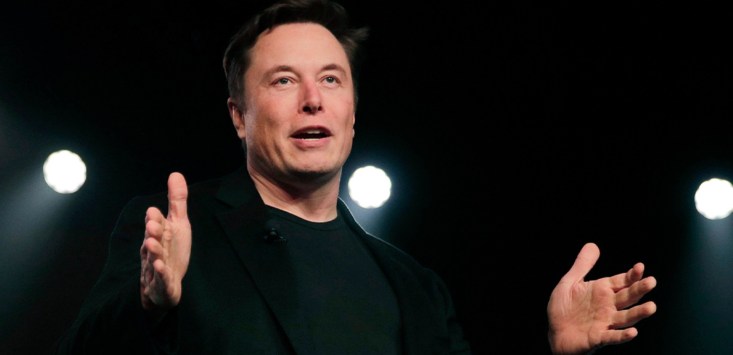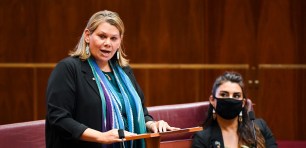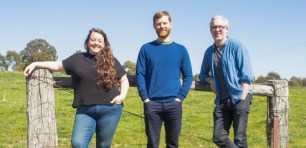
Source: Guinness World Records
Australia has historically treated connectivity as a luxury rather than a critical utility. And this has been felt most sorely in rural Australia which still often suffers from black spots and pricey plans. But two press releases regarding NBN and Starlink, sent mere hours apart, hint that service providers are ramping up their fight for rural Australia.
Press release show down
The first email dropped at 5am. It was from Ookla, which specialises in network testing around the world. It’s perhaps best known for its broadband and mobile speed testing. It also owns Down Detector — a site that a good chunk of us nerds and journalists rush to when a network or website has gone down.
Ookla was sliding into inboxes to confirm that in Q4 of 2022 Elon Musk’s low orbit satellites, Starlink, had the fastest median download speed across all Satellite providers in the Oceania region.
The fastest was in New Zealand at 124.72 Mbps, followed by Australia at 106.43 Mbps. It’s an impressive figure, despite actually being a speed reduction of 24% compared to Q4 of 2021.
Get daily business news.
The latest stories, funding information, and expert advice. Free to sign up.
Still, this decrease is still punching above legacy satellite system Sky Muster, which is operated by NBN Co.
Roughly three hours after the Ookla press release dropped, a new email appeared from NBN Co. and it had satellite related news.
It was announcing a three-month trial of a new Sky Muster Plus plan. It would now deliver unmetered speeds of up to 100 Mbps for roughly 10,000 customers across Australia.
“It is the latest step in the evolution of the nbn satellite network, as nbn continues to push the boundaries of its satellite services in response to the growing needs of regional and remote users.” the press release read.
It just won’t be pushing them as high as Starlink’s low orbit offering, even with a 24% downturn in speed.
While the timing on these press releases are certainly amusing, we’re not implying that NBN Co was reacting to the Ookla results. Coincidences happen all the time.
Still, the timing didn’t stop NBN Co from taking a subtle dig at the competition, particularly in regards to the installation fees that Starlink charges.
“The nbn Sky Muster satellite service is Australian-owned and secure. Our satellite equipment is professionally installed, and we do not charge internet service providers for a standard installation or the standard satellite equipment,” Williams said in a statement.
The impact of poor connectivity on rural businesses
Connectivity issues have always been a major blocker for Australia’s rural and farming communities. Phone signals can be patchy and towers are often locked to specific networks. Options tends to be limited and expensive.
To put it into perspective, while we’re celebrating 1000 Mbps speeds on satellite internet, the average for ‘high speed’ fibre services is around 791 Mbps.
It was only three years ago that Telstra rolled out SMS over Wi-Fi technology during an investigation by this author. Connectivity such as this is critical because its often what is needed to receive two-factor authentication and emergency evacuation texts.
These problems only become bigger and more expensive if you’re trying to run a rural business — especially in the tech space.
Andrew Bate is the founder and CEO of SwarmFarm, an autonomous robotic farming startup operating at of rural Queensland. Just a few weeks back in raised $12 million in Series A funding.
He recalls when he was first able to get NBN into his hometown of Gindie, roughly 800km north west of Brisbane.
“There wasn’t much innovation there,” he says on a call with SmartCompany.
“You’d have the book, an appointment, they’d have a look at your farm… then book another appointment months later for someone to come and install it. It took like nine months to get the system installed because the roll out was so slow.”
Bate compares this to Starlink, which he said was a simple installation process and resulted in great internet within two weeks.
“It’s not just about the technology about the business model to go with it and how that technology is rolled out. NBN didn’t work for us.”
Even when SwarmFarm got a connection, data was a problem. It’s a software company in rural Australia that needed data not only to operate but even conduct what should be simple video calls.
But it was limited to 25GB downloads per month. Once it went over that cap, the speeds would be throttled to a snail’s pace.
SwarmFarm has to create its own innovation to be able to operate.
“We put four NBNs across four different buildings, but never used three of them. Once we hit our data limit… we’d unscrew the box, off the wall, grab the next one out and hook it up. That’s the only way we could survive” Bate said.
“It was costing us a thousand dollars a month to get a 100GB… for pretty substandard internet.”
Still, the business found its calls would drop out consistently. They would miss important parts of conversations.
“It was undercooked from the start and we realised we couldn’t survive as a modern farming business on that.”
While Fibre to the Node (FTTN) existed in town, they weren’t able to connect to it without a street address. Eventually they paid to put their own dedicated microwave link back to fibre, piggybacking off dishes on townspeople’s roofs that are connected into their fibre.
Solace finally came in 2015 when a competitor, now owned by Field Solutions Group, put its own network across the town that SwarmFarm were able to tap into.
Innovation and competition
There is a great deal of talk around the government and major service providers needing to step it up when it comes to rural connectivity. While Bate agrees, he’s also a firm believer in farmer innovation
“It’s time to look inwards. If connectivity is such a big hamstring to business — and it is — why is that we won’t go and spend money on it?”
“The solutions now that you can buy can give you some of this connectivity. For the price of a dual cab, you can put your own 4G network on farm if you want to.”
Bates is also passionate about innovations by farmers for farmers. After all, they’re going to know what their fellow comrades need more than a suit in a capital city.
One of the local solutions Bates mentions is Zetifi, a Wagge Wagga based startup that recently raised $12 million for its wi-fi extension products for farmers.
Dan Winson, CEO of Zetifi, has welcomed the news of the faster Sky Muster Plus trial.
“More farmers having access to fast unlimited data is great news, as modern farming practices can use large amounts of data, especially when you look at the opportunities for farm-wide connectivity that links up machinery, cameras and sensors so this is definitely another step in the right direction,” Winson said in an email to SmartCompany.
“Ultimately, more competition and a mixture of providers and technologies is what’s needed to meet the ever-increasing data demands of agriculture and other rural and remote businesses.”
Considering that NBN Co is government business enterprise, it’s a shame that it has taken a mixture of scrappy upstarts and overseas billionaires to light a fire under its sense of competition.
But if this is the beginning of better connectivity, speeds and prices for rural communities and businesses — light ’em up.
‘This article was updated at 8.15am on Wednesday, March 1, 2023’
Handpicked for you

“The first astronomers, agriculturalists”: Greens demand urgent action on Indigenous IP policy




COMMENTS